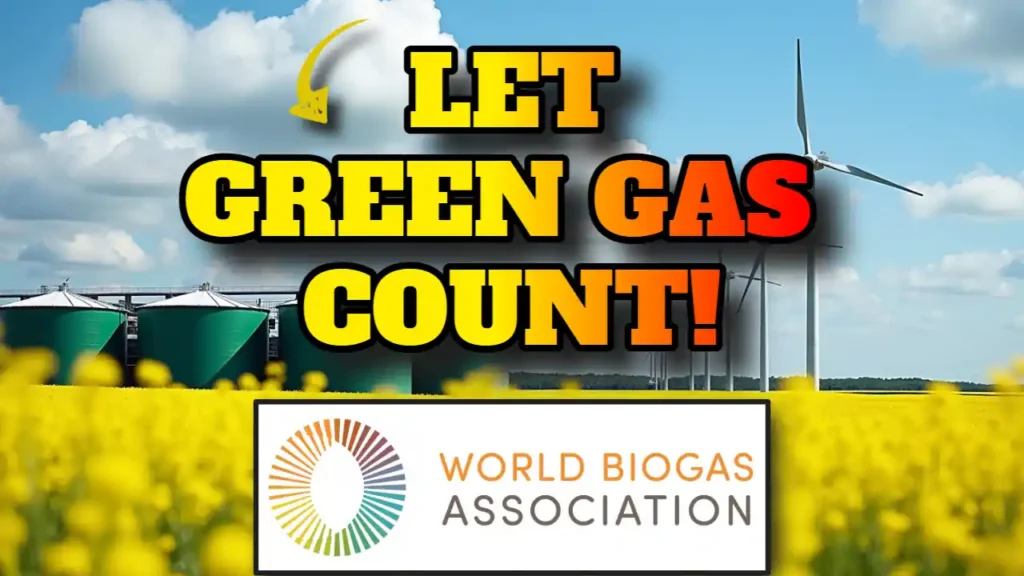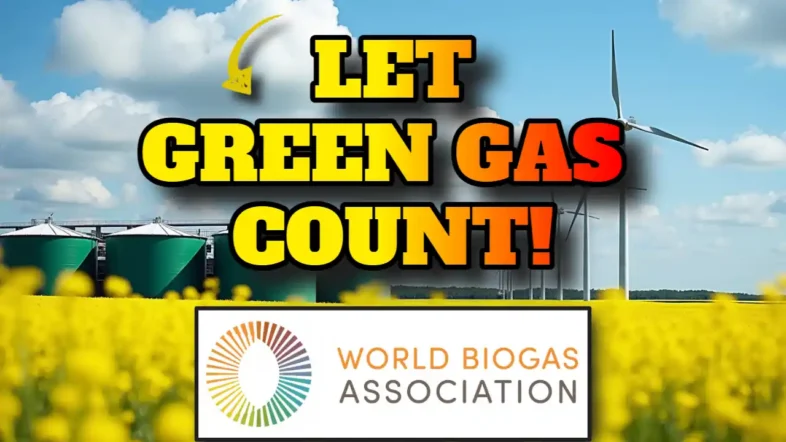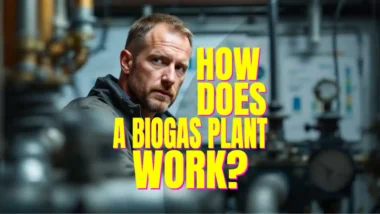More than 145 international organisations have endorsed an open letter requesting clarification in the GHG Protocol regarding the withdrawal of guidance on the use of biomethane certificates in the GHG Protocol.
Imagine a world where the power fueling our factories, heating our homes, and driving our vehicles can be sourced from entirely renewable, environmentally friendly gases.
That’s exactly what more than 145 global organizations are pushing for as they call on the Greenhouse Gas (GHG) Protocol to officially recognize market-based instruments—such as biomethane certificates—in Scope 1 emissions reporting.
This push arrives at a pivotal moment, coinciding with the ongoing revision of the GHG Protocol’s Corporate Standard.
The coalition, led by major biogas associations worldwide, asserts that without clear guidance and recognition, renewable gas deployment will remain stunted, delaying progress in critical sectors like industry, transport, and buildings.
In this article, we delve into the urgent call for reform, the barriers to scaling renewable gas, and the far-reaching implications for corporate climate strategies around the globe.
Key Takeaways
- Over 145 global organizations have signed an open letter urging the GHG Protocol to recognize market-based instruments for renewable gases in Scope 1 emissions reporting.
- The initiative comes at a crucial time during the revision of the GHG Protocol's Corporate Standard, with industry leaders calling for an interim statement by mid-2025 to provide immediate market certainty.
- The current lack of clear guidance on biomethane certificates is identified as a significant barrier to scaling up renewable gas adoption and achieving meaningful greenhouse gas emission reductions.
- Market-based approaches are deemed essential to overcome physical connection requirements that currently limit the efficient deployment of renewable gases across industry, transport, and building sectors.
- The coalition, led by five major international biogas associations, represents stakeholders across the entire renewable gas value chain, demonstrating strong industry alignment on this issue.
The Battle for Biomethane: Why Green Gas Needs Recognition in Climate Standards
In a landmark move that could reshape climate reporting standards, GHG Protocol renewable gas certification in the Greenhouse Gas (GHG) Protocol.
The coalition, representing a diverse range of economic operators in the renewable gas sector, issued a joint open letter on February 10, 2025, with a simple but powerful message: “Let green gas count!”

The unprecedented initiative comes in response to the recent withdrawal of guidance on biomethane certificates in the GHG Protocol, highlighting a critical gap in how renewable gases are recognized in corporate emissions reporting.
“The Greenhouse Gas Protocol's lack of guidance on market-based mechanisms such as biomethane certificates has been suppressing the sector,”
explains Charlotte Morton OBE, Chief Executive of the World Biogas Association.
“We cannot afford to wait years for new standards to be developed. The sector needs certainty now.”
The timing of this push is particularly significant as the GHG Protocol undergoes revision of its Corporate Standard. The coalition is calling for two key actions: the inclusion of a market-based approach in Scope 1 inventory reporting and an interim statement in the first half of 2025 confirming that robust market instruments for renewable gases will be recognized.

At the heart of the issue lies the need for a more flexible approach to renewable gas certification.
The current framework's requirement for physical connections creates unnecessary barriers to the rapid deployment of renewable gases, which are crucial for decarbonizing various sectors including industry, transport, and buildings.
The initiative is spearheaded by major industry bodies including:
– World Biogas Association (WBA)
– Anaerobic Digestion and Bioresources Association (ADBA)
– Coalition for Renewable Natural Gas
– Eurogas
– European Biogas Association (EBA)
These organizations emphasize that market-based instruments are essential for overcoming economic, technical, and environmental barriers that currently hinder the expansion of renewable gas adoption. Their collective voice represents a significant portion of the global renewable gas value chain, from production and trading to consumption.
The GHG Protocol, widely recognized as the global standard for emissions measurement and management, plays a pivotal role in shaping corporate climate strategies worldwide. Any changes to its framework could have far-reaching implications for how companies approach their decarbonization efforts and invest in renewable gas technologies.
As the world races to meet ambitious climate targets, the recognition of market-based instruments for renewable gases could unlock significant investment in the sector, accelerating the transition away from fossil fuels while providing a sustainable solution for organic waste management and reducing methane emissions.
The coalition awaits a response from the GHG Protocol's governance bodies, with hopes that this coordinated effort will lead to meaningful changes in how renewable gases are recognized and reported in corporate climate accounting.
In Defence of the Climate Change Committees' removal of Green Gas
The committee has stated the following regarding the removal:
GHG Protocol currently does not explicitly include renewable gas certification because its primary focus is on standardizing the measurement and reporting of greenhouse gas emissions across different industries, not on certifying specific renewable energy sources like renewable gas; this means the protocol provides guidance on calculating emissions from renewable gas usage, but doesn't directly address the certification process itself, leaving that to separate standards and regulations within the market.
Key points to consider:
- Scope of the protocol: The GHG Protocol aims to provide a comprehensive framework for greenhouse gas accounting, focusing on calculating emissions across different scopes (direct emissions, purchased energy, and value chain emissions) rather than certifying specific renewable energy sources.
- Market development:
While renewable gas is gaining traction, the certification standards for renewable gas might still be evolving in different regions, making it difficult to incorporate a single certification standard into the GHG Protocol. - Flexibility for companies:
By not including specific certification requirements, the GHG Protocol allows companies to utilize existing renewable gas certification schemes that are relevant to their location and operational context.
Our Opinion
It is clear that a substantial number of organisations want the GHG Protocol renewable gas certification in the Greenhouse Gas (GHG) Protocol.
So, the committee should change the scope of the protocol, reinstate the green gas clauses, and update it regularly from now on to incorporate industry developments, while keeping it flexible enough for users to comply with their local guidance.





